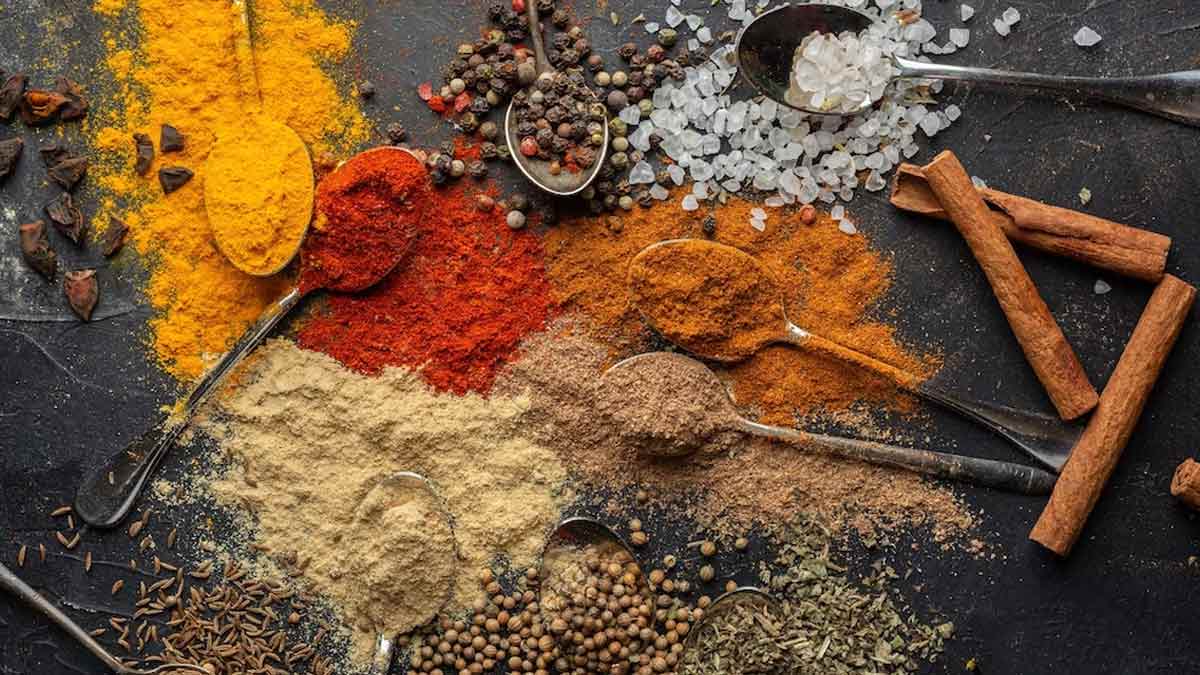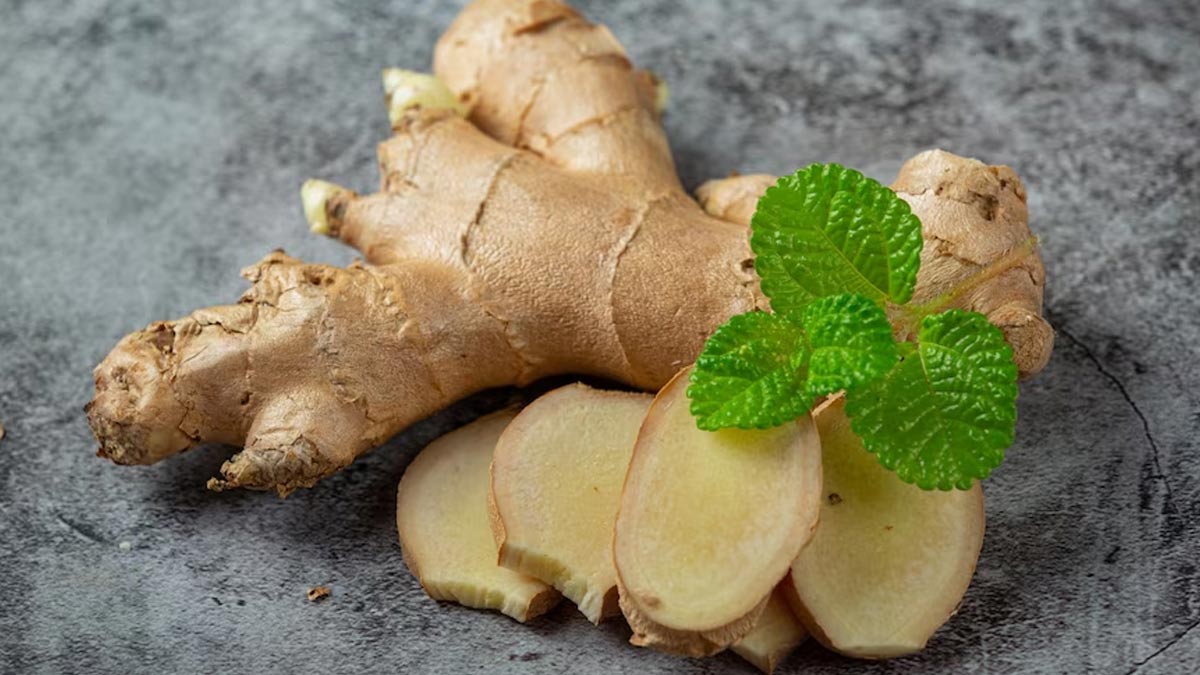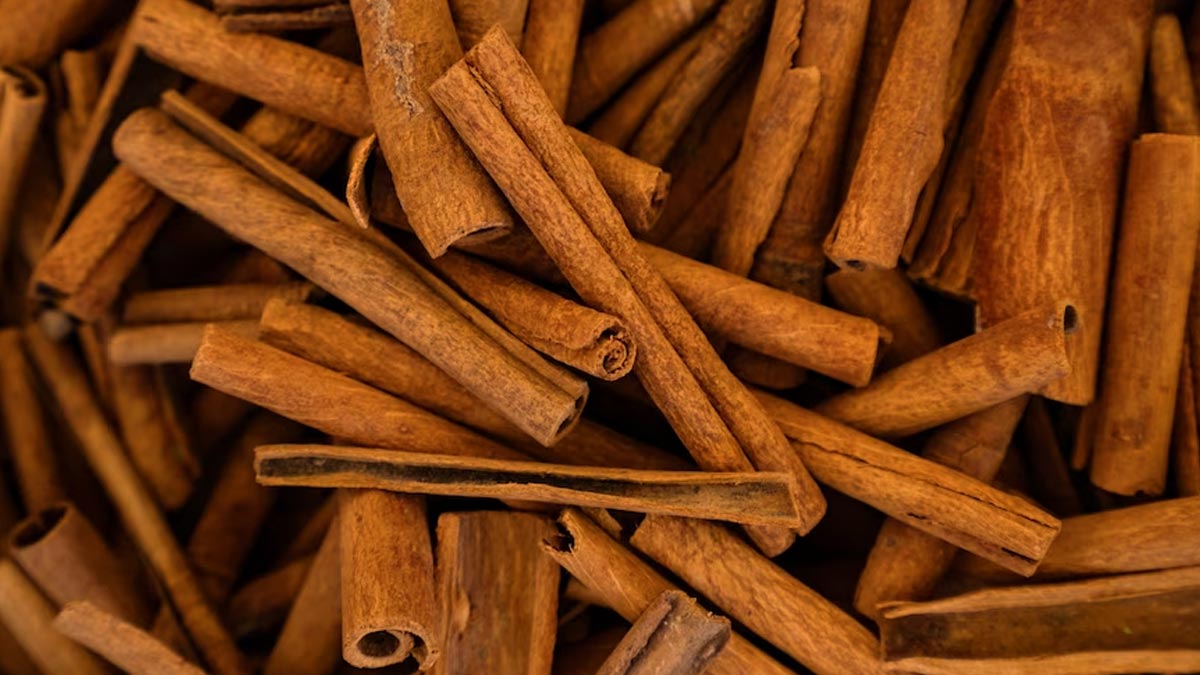
It is common to experience symptoms of flu and cold all year round. Changing seasons, air pollution, exposure to different viruses and bacteria, and a weakened immune system are often the primary culprits. While consulting a doctor and taking necessary medications prescribed by them is the way to approach the illness, natural remedies can also help build protection against contagious infections. These include common Indian spices from your very own kitchens.
Ginger

Ginger is a multipurpose spice that is not only used in preparing foods but is also added to our teas to enhance taste. It is a nutritious spice that is rich in bioactive compounds like gingerol, which are said to have anti-inflammatory and antioxidant properties. In addition, ginger is also known to contain vitamin C, which is said to alleviate cold symptoms, such as a sore throat, cough, fever, and body ache.
Also Read: 6 Common Indian Spices With Amazing Health Benefits
Turmeric
Turmeric is a widely-used spice that contains a powerful antioxidant and anti-inflammatory compound called curcumin. Curcumin is said to have immune-boosting properties that prevent the occurrence of infections. Research suggests curcumin can lower inflammation in the body and also enhance the innate immune system against tumour cells, cardiovascular diseases, and pathogens.
Cinnamon

Cinnamon is not only loaded with antioxidants polyphenols and proanthocyanidins that protect the body free radicals and oxidative damage, but is also packed with anti-inflammatory, antibacterial, and antifungal properties that help the immune system combat various infections and illnesses. You can add a pinch or a teaspoon of cinnamon to your morning smoothie, oatmeal, or yoghurt, and reap its benefits.
Black Pepper
Black pepper is packed with a compound called piperine, which is said to promote nutrient absorption, including certain immune-boosting vitamins and minerals. Adding black pepper to your meals can help your body enhance its utilisation of essential nutrients, thereby indirectly supporting immune function.
Also Read: Searching For Ways To Boost Immunity Naturally? Here's What You Need To Do
Cardamom
Rich in vitamin B1, potassium, calcium, and antioxidants like flavonoids and polyphenols, cardamom is a highly aromatic spice usually added to foods and drinks. It also contains vitamin C and various phytochemicals, which have potential anti-inflammatory and antimicrobial properties that help contribute to a stronger immune system.
Liquorice (Mulethi)
.jpg)
If you're looking for a quick fix for cold symptoms, licorice or mulethi can help. Also known as "Sweetwood,” it contains vitamins like B1, B2, B3, B5, E and C, and is widely used in Ayurvedic practices. Research suggests it contains a compound called glycyrrhizin, which contains antioxidant, antibacterial, and anti-inflammatory properties, which support immune functions.
Amla
The Indian gooseberry, also called amla, has significant immunity-boosting properties. A 2015 study, published in the Journal of Food Science and Technology, suggests that a single amla contains about 600–800% of the Daily Value (DV) for vitamin C, a nutrient that is known to strengthen the immune system and protect against foreign pathogens. Moreover, it is packed with antioxidants, which helps protect against cellular damage.
Bottomline
Indian spices work wonders for health without any significant side effects. However, they should not be the final resort. Communicating your health concerns with a doctor or healthcare professional is of utmost importance. One must refrain from self-medication and avoid remedies that add to further discomfort.
Also watch this video
How we keep this article up to date:
We work with experts and keep a close eye on the latest in health and wellness. Whenever there is a new research or helpful information, we update our articles with accurate and useful advice.
Current Version
